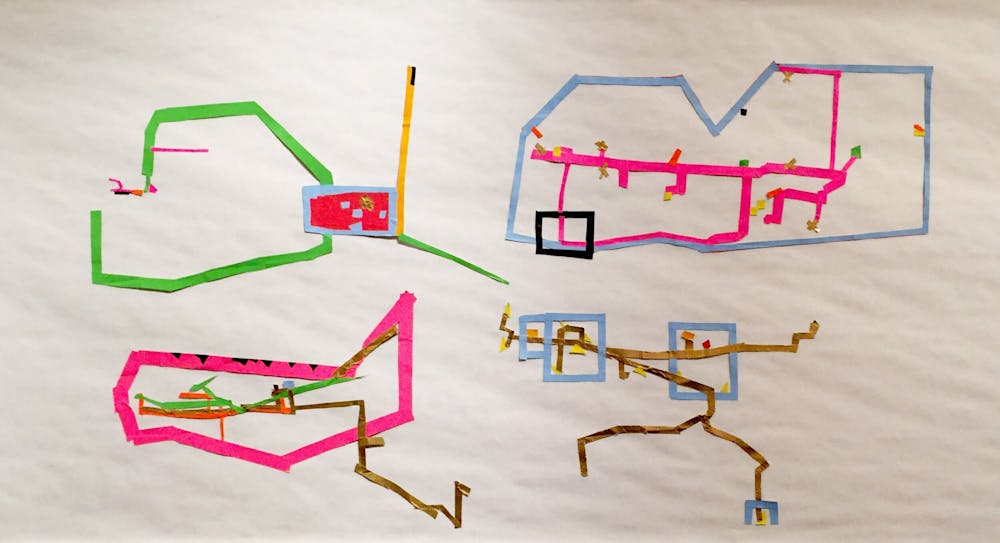There’s an art to the routes people travel every day — finding the fastest way possible to get from one place to another while avoiding traffic, tolls and other hindrances. One artist doesn’t just think those routes are art. She makes art out of them.
Israeli artist Shirel Horovitz will be hosting a series of arts workshops at the Charlotte & Dick Levin Jewish Community Center in Durham on Feb. 7, 8, 9 and 12.
At these workshops, attendees will trace the routes they traveled that day on a map, then hand the maps over to Horovitz. She then takes these maps and makes them into works of art. The results will be displayed at one of the Durham Art Council's galleries starting on Feb. 21.
Horovitz’s goal is to look at the relationship between Durham and its Jewish community.
“What draws me most are socioeconomic and racial tensions and the way they overlap and change throughout history, and the way the Jewish community is part of that role or not in a city,” Horovitz said. “I think in that way, cities in the South are fascinating, because it's such a convoluted, charged history.”
JCC member Greg Rapp, who attended Horovitz’s lecture about the history of Israeli art on Tuesday night, said she talked about how the geography evident in this work can reveal socioeconomic tensions.
“She talked about walking to where the sidewalks end,” Rapp said. “The city chose to build sidewalks, but not everywhere. They chose to build them here, but not there. Why is that? Are there social implications of that? Are there economic implications of that? So, you can reverse engineer or decipher what was the communal thinking around sidewalks based on what they actually ended up building.”
Levin JCC’s Adults, Arts, Ideas and Israel Center Program Manager Lana Dennis said the project will help attendees become more aware of their community.
“It's a zoomed-out version of our lives, which helps ground you, and I think that's something that's a good reminder for a lot of people,” Dennis said.




